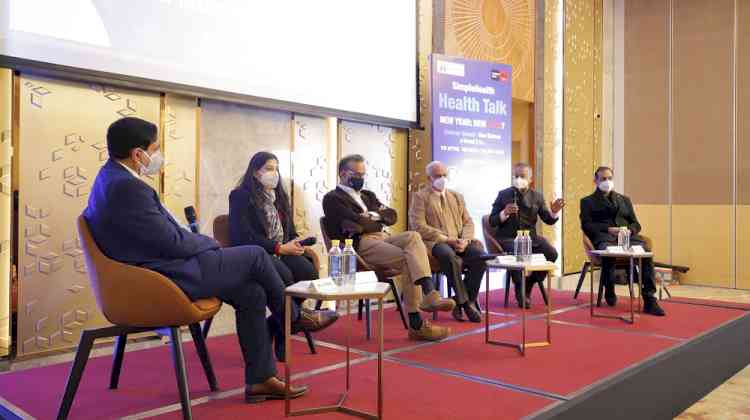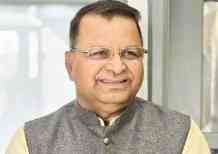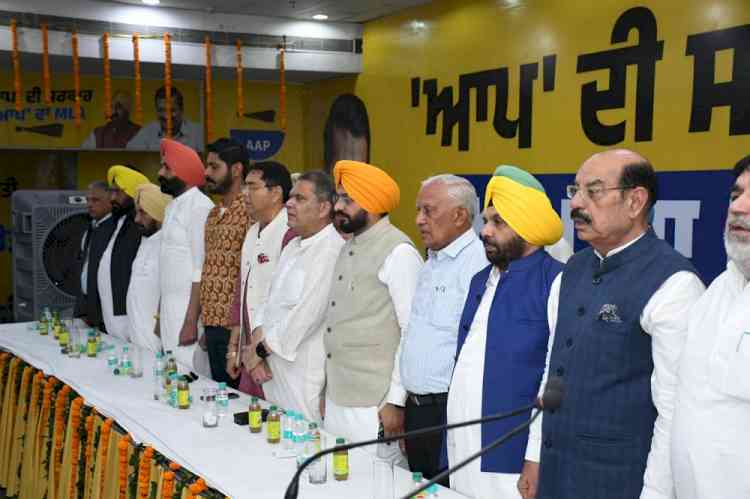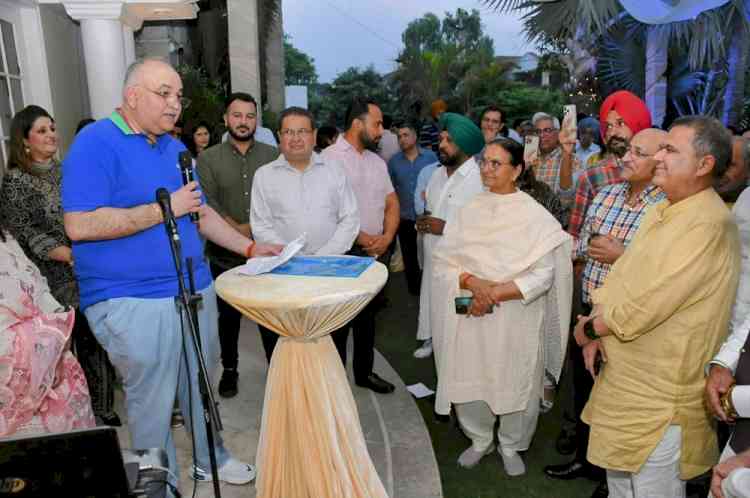Omicron’s severity less but health infrastructure could collapse if virus spread not dealt with effectively: Dr. H K Bali
A panel discussion of eminent doctors was held to demystify myths around the highly transmissible Omicron variant

Mohali, January 9, 2022: In view of the rising Omicron cases – a panel discussion of eminent doctors was held to demystify myths around the highly transmissible Omicron variant at Radisson Red, here.
The panel discussion moderated by Dr. H K Bali, Chairman Cardiac Sciences, Paras Group of Hospitals; was attended by Dr. A K Mandal, Pulmonologist and presently Director Pulmonology, Sleep & Critical Care, Fortis Hospital; Dr. Ashish Bhalla, Professor (Internal Medicine) PGI; Dr. Raman Abrol, Consultant Endoscopic and ENT Surgeon, Abrol ENT Institute & Research centre; Dr Ravul Jindal, Director, Vascular Surgery, Fortis Hospital; and Dr Nimisha Batra, Consultant Radiologist, DN Imaging & Diagnostic Centre. SimpliHealth, a health portal, organised the panel discussion.
Expressing grave concern on the Omicron variant which is fuelling the third wave at a much faster speed than what the Delta variant did last year, Dr. H K Bali said, “The sudden surge of Omicron cases in tricity & in the country is a matter of concern. Even though Omicron is causing less severe disease, the rapid caseload on hospitals could collapse health infrastructure if not dealt with immediately.”
Sharing his view on Omicron severity, Dr. A.K. Mandal, Pulmonologist said, “Though the infection has mild symptoms with fewer hospitalisations, caution is required as the virus is highly contagious. Most hospitals are not prepared to tackle the crisis. It’s all rhetoric that they are prepared for the battle but actually they are not. As a significant number of HCWs' are already infected and more are likely to get infected, we should ramp up our health infrastructure.”
Shedding light on the Omicron threat, Dr. Ashish Bhalla highlighted that pandemics usually have a life span of 2 and a half to 3 years and they end when a milder, more infective variant replaces a virulent one. “This mild variant then stays within the community. Viruses never die and cannot be eradicated. However, immunity can reduce the severity of disease. Occasionally, a mutated, more virulent variant may resurface and cause outbreaks again. Maybe omicron might be the beginning of the end,” said Dr. Bhalla.
Dr Nimisha Batra, suggested strict adherence to COVID appropriate behavior and urged people who haven't got vaccinated to get their vaccination done. "The road ahead needs to be paved with greater vaccinations at the very least. To keep the virus at bay one doesn’t need special training. Simple practices like wearing an N95 mask and maintaining physical distance will help in containing the spread of the virus."
Dr Ravul Jindal said, “We can’t be complacent about the severity of Omicron as it is just the beginning. Yes, the effect of the new variant is mild but it is dangerous as it's spreading like wildfire. People who are not vaccinated and have comorbidities are more vulnerable to the virus.”
Dr. Raman Abrol, added, “The Omicron variant has over two and a half dozen mutations in the spike protein region. This fact confers Omicron with two properties that render it worse than Delta. One, very high viral loads are seen in infected people which causes the virus to potentially spread to other people faster. And two, it seems to be infecting people with vaccine induced immunity."


 IANS
IANS 










